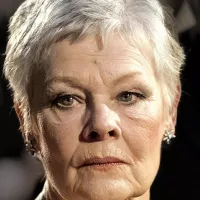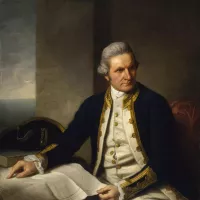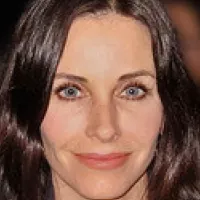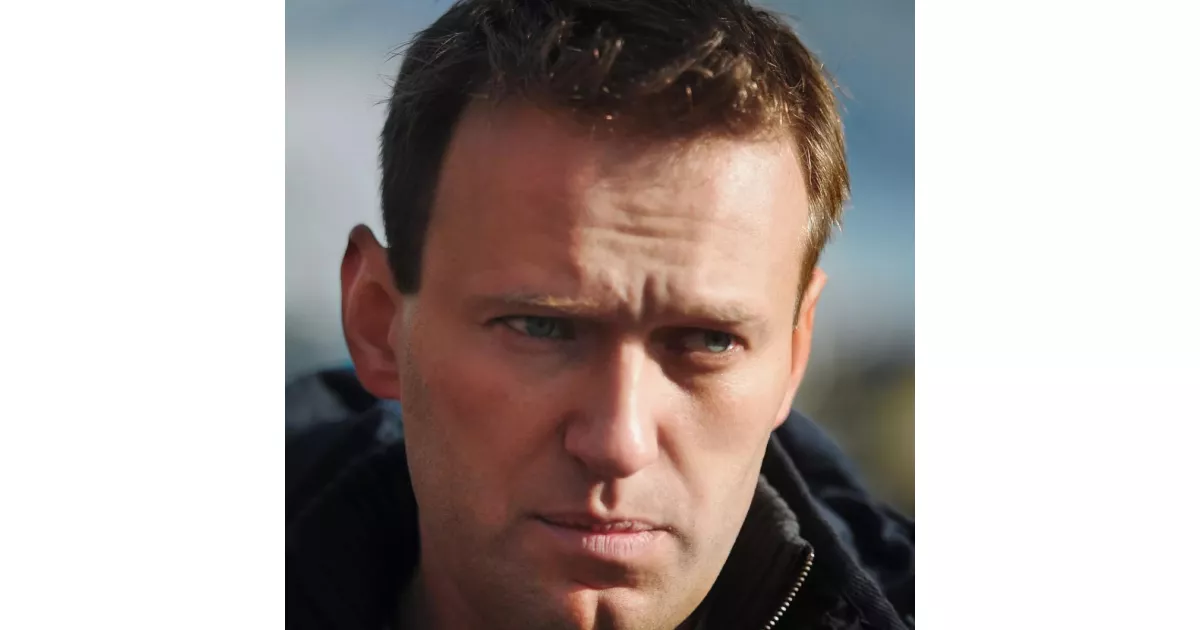From career breakthroughs to professional milestones, explore how Alexei Navalny made an impact.
Alexei Navalny was a prominent Russian opposition leader and anti-corruption activist. He founded the Anti-Corruption Foundation (FBK) in 2011, dedicated to investigating and exposing corruption within the Russian government. Navalny gained international recognition for his activism, including being recognized as a prisoner of conscience by Amnesty International and receiving the Sakharov Prize. However, he also faced multiple criminal charges and imprisonment, widely considered politically motivated. He was a vocal critic of Vladimir Putin and a significant figure in Russian politics despite facing constant pressure and legal challenges.
1998: Corporate lawyer
From 1998 onward, Alexei Navalny worked as a corporate lawyer for various Russian companies.
2000: Joined Yabloko party
In 2000, Alexei Navalny joined the Russian United Democratic Party Yabloko.
2001: Listed as Yabloko party member
In 2001, Alexei Navalny was listed as a member of the Yabloko party.
2002: Elected to regional council of Yabloko
In 2002, Alexei Navalny was elected to the regional council of the Moscow branch of Yabloko.
2003: Headed Moscow election campaign of Yabloko
In 2003, Alexei Navalny headed the Moscow subdivision of the election campaign of the Yabloko party.
April 2004: Chief of Staff of Moscow Yabloko
In April 2004, Alexei Navalny became Chief of Staff of the Moscow branch of Yabloko.
August 2005: Admitted to Social Council of Moscow
In August 2005, Alexei Navalny was admitted to the Social Council of the Central Administrative Okrug of Moscow.
2006: Federal Council member of Yabloko party
From 2006 to 2007, Alexei Navalny was a member of the Federal Council of the Yabloko party.
2006: Appealed for Russian March
In late 2006, Alexei Navalny appealed to the Moscow City Hall for permission to conduct the nationalist 2006 Russian march.
February 2007: End of tenure as Chief of Staff of Moscow Yabloko
In February 2007, Alexei Navalny's tenure as Chief of Staff of the Moscow branch of Yabloko ended.
December 2007: Expelled from Yabloko
In December 2007, Alexei Navalny was expelled from Yabloko for his nationalist views and for participating in the Russian March.
2008: Navalny becomes activist shareholder in oil and gas companies
In 2008, Alexei Navalny invested 300,000 rubles to become an activist shareholder in five Russian oil and gas companies (Rosneft, Gazprom, Gazprom Neft, Lukoil, and Surgutneftegas) to increase the transparency of their financial assets.
2009: Advocate of Kirov Oblast
In 2009, Alexei Navalny became an advocate and a member of advocate's chamber of Kirov Oblast.
October 2010: Navalny Wins Online Poll for Mayor of Moscow
In October 2010, Navalny won an online poll for the mayor of Moscow, conducted by Kommersant and Gazeta.Ru, receiving approximately 45% of the votes.
November 2010: Navalny publishes documents about Transneft auditing
In November 2010, Alexei Navalny published confidential documents about Transneft's auditing, alleging that about US$4 billion were stolen during the construction of the Eastern Siberia–Pacific Ocean oil pipeline.
2010: Advocate of Moscow
In 2010, Alexei Navalny ceased to be a member of advocate's chamber of Kirov Oblast and became a member of advocate's chamber of Moscow.
May 2011: Navalny launches RosYama project
In May 2011, Alexei Navalny launched RosYama, a project that allowed individuals to report potholes and track government responses to complaints.
December 2011: Call to unite against Putin
Upon his release on December 20, 2011, Alexei Navalny called on Russians to unite against Putin.
2011: United Russia, a party of crooks and thieves
In 2011, Alexei Navalny described Russia's ruling party—United Russia—as a "party of crooks and thieves", which became a popular byname.
2011: Founded Anti-Corruption Foundation
In 2011, Alexei Navalny founded the Anti-Corruption Foundation (FBK).
2011: Predictions for Sobyanin Win
Leading sociological research organizations anticipated Sobyanin's victory in the election with 58-64% of the vote. The final results of the voting showed Navalny received 27% of the vote, more than candidates appointed by the parties that received second, third, fourth, and fifth highest results during the 2011 parliamentary elections, altogether. Sobyanin received 51% of the vote, winning the election.
February 2012: Navalny on federal money spent by the Chechen Interior Ministry
In February 2012, Alexei Navalny concluded that Russian federal money going to Ramzan Kadyrov's Chechen Interior Ministry was being spent "in a totally shadowy and fraudulent way."
March 2012: Presidential election
Alexei Navalny stated that Vladimir Putin would try to claim victory in the presidential election, which was held on March 4, 2012.
June 2012: Navalny's Comrades Plan New Political Party
On 26 June 2012, Navalny's comrades announced the establishment of a new political party based on e-democracy, though Navalny stated he did not plan to participate at that time.
December 2012: Navalny Supports the People's Alliance Party
On 15 December 2012, Navalny expressed his support for "The People's Alliance" party, calling it "my party", but still refused to join, citing criminal cases against him.
2012: Navalny Faces Embezzlement Charges
On 18 July 2012, Navalny was sentenced to a five-year prison term for embezzlement and fraud. He pulled out of the Moscow mayoral race but later vowed to stay after being freed on bail pending an appeal.
April 2013: People's Alliance Party Files for Official Registration
On 10 April 2013, The People's Alliance party filed documents for official registration, but on 30 April, the registration was suspended.
May 2013: Moscow Mayor Argues for Elected Mayor
On 30 May 2013, Sergey Sobyanin, the mayor of Moscow, argued an elected mayor is an advantage for the city compared to an appointed one.
July 2013: Registration Declined for People's Alliance Party
On 5 July 2013, registration was declined for The People's Alliance party, due to some founders not being present during the congress. Navalny reacted with a tweet.
September 2013: Navalny Declares Intention to Join People's Alliance Party
On 15 September 2013, following the mayoral election, Navalny declared he would join and possibly head the People's Alliance party.
October 2013: Reaction to Mayoral Election Result
In October 2013, following Navalny's second-place finish in the Moscow mayoral election, Nezavisimaya Gazeta declared, "The voting campaign turned a blogger into a politician". A Levada Center poll indicated Navalny was a potential presidential candidate. However, The Washington Post suggested the election was fair to demoralize the opposition. Putin's press secretary downplayed Navalny's result.
November 2013: Deprived of advocate status
In November 2013, after the judgement in the Kirovles case had entered into force, Alexei Navalny was deprived of advocate status.
November 2013: Navalny Elected Leader of People's Alliance Party
On 17 November 2013, Navalny was elected as the leader of the People's Alliance party.
2013: Suspended sentence and Moscow mayoral election
In 2013, Alexei Navalny received a suspended sentence for embezzlement, considered politically motivated. He also ran in the 2013 Moscow mayoral election and came in second.
2013: Navalny Re-sentenced in Kirovles Case
On 8 February 2017, the Leninsky district court of Kirov repeated its 2013 sentence in the Kirovles case, potentially prohibiting Navalny's official registration as a candidate. Navalny announced his presidential campaign would proceed regardless.
January 2014: Navalny's Party Files for Registration Again
On 8 January 2014, Navalny's party filed documents for registration for the second time, however, on 20 January, registration was suspended because no two parties can share a name.
February 2014: Navalny's Party Renamed to Progress Party and Registered
On 8 February 2014, Navalny's party changed its name to "Progress Party". On 25 February 2014, the party was registered and had six months to register regional branches.
September 2014: Progress Party Declares Registration of Regional Branches
On 26 September 2014, the Progress Party declared it had registered 43 regional branches.
November 2014: RPR-PARNAS Co-Chairmen Declare Coalition
On 14 November 2014, Boris Nemtsov and Mikhail Kasyanov, co-chairmen of RPR-PARNAS, declared the need for a wide coalition of political forces, with Navalny's Progress Party as a potential participant.
2014: Second suspended sentence
In 2014, Alexei Navalny received a second suspended sentence for embezzlement, widely considered politically motivated and intended to bar him from running in future elections.
February 2015: Nemtsov Assassination Accelerates Coalition Efforts
In February 2015, Nemtsov's murder accelerated work on a coalition involving Navalny and Khodorkovsky. On 17 April, Navalny declared an agreement of formation of a new electoral bloc between Progress Party and RPR-PARNAS.
February 2015: Progress Party Prepares for 2016 Elections
On 1 February 2015, Navalny stated the Progress Party was preparing for the 2016 elections and would maintain its activity across Russia, even in Crimea. Candidates would be chosen via primary elections.
April 2015: Progress Party Deprived of Registration
On 28 April 2015, the Ministry of Justice deprived the Progress Party of its registration, claiming the party had not registered the required number of regional branches within six months. The party would appeal.
July 2015: Kasyanov Elected Leader of RPR-PARNAS
On 5 July 2015, Kasyanov was elected as the only leader of RPR-PARNAS, which was renamed to PARNAS. He expressed interest in re-establishing co-chairmanship in the future.
September 2016: RPR-PARNAS To participate in the State Duma elections
RPR-PARNAS is eligible for participation in statewide elections, and is also currently not required to collect citizens' signatures for the right to participate in the State Duma elections scheduled for September 2016, due to the regional parliament mandate previously taken by Nemtsov
December 2016: Navalny Announces Presidential Bid
On 13 December 2016, Navalny announced his entry into the presidential race.
2016: Progress Party Prepares for 2016 Elections
On 1 February 2015, Navalny stated the Progress Party was preparing for the 2016 elections and would maintain its activity across Russia, even in Crimea. Candidates would be chosen via primary elections.
February 2017: Navalny Re-sentenced in Kirovles Case
On 8 February 2017, the Leninsky district court of Kirov repeated its 2013 sentence in the Kirovles case, potentially prohibiting Navalny's official registration as a candidate. Navalny announced his presidential campaign would proceed regardless.
March 2017: Navalny publishes investigation and organizes anti-corruption rallies
In March 2017, Alexei Navalny published the investigation He Is Not Dimon to You, accusing Prime Minister Dmitry Medvedev of corruption, and organized anti-corruption rallies across Russia. On March 27, he was fined 20,000 rubles and jailed for 15 days.
April 2017: Levada Center Poll on Presidential Election
A Levada Center survey released on April 6, 2017, showed that Navalny's recognition among the Russian population was at 55%. Among those who recognised him, 4% would definitely vote for him and 14% would probably vote for him in the presidential election.
December 2017: Navalny Barred from Presidential Run
In December 2017, Russia's Central Electoral Commission barred Navalny from running for president in 2018 due to his corruption conviction. The European Union expressed concerns, and Navalny called for a boycott of the election.
January 2018: Navalny leads protests and is arrested
On January 28, 2018, Alexei Navalny led protests urging a boycott of the presidential election. He was arrested on the same day and released pending trial. Throughout the country, 257 people were arrested. Navalny was likely to be charged with calling for unauthorized demonstrations.
January 2018: Navalny imprisoned for staging protests in January 2018
Shortly after his allegations against Viktor Zolotov, Alexei Navalny was imprisoned for staging protests in January 2018.
August 2018: Navalny alleges Viktor Zolotov stole from procurement contracts
In August 2018, Alexei Navalny alleged that Viktor Zolotov stole at least US$29 million from procurement contracts for the National Guard of Russia.
2018: Navalny a viable contender to Vladimir Putin in the 2018 election
According to Freedom House and The Economist, Navalny was the most viable contender to Vladimir Putin in the 2018 election.
2018: Barred from 2018 presidential election
Alexei Navalny was barred from running in the 2018 presidential election.
2018: Navalny Barred from Presidential Run
In December 2017, Russia's Central Electoral Commission barred Navalny from running for president in 2018 due to his corruption conviction. The European Union expressed concerns, and Navalny called for a boycott of the election.
July 2019: Navalny arrested and hospitalized
In July 2019, during the Moscow City Duma election, Alexei Navalny was arrested, first for ten days, and then for 30 days. On July 28, he was hospitalized with severe damage to his eyes and skin and diagnosed with an "allergy". On July 29, he was discharged and taken back to prison. In response, he initiated the Smart Voting project.
January 2021: Investigation accusing Putin of building massive estate published
On January 19, 2021, an investigation by Alexei Navalny and the FBK was published, accusing President Vladimir Putin of using fraudulently obtained funds to build a massive estate for himself near Gelendzhik, costing over 100 billion rubles ($1.35 billion).
July 2022: Navalny relaunches Anti-Corruption Foundation as international organisation
On 11 July 2022, Alexei Navalny announced the relaunch of his Anti-Corruption Foundation as an international organisation. The first contribution would be the Sakharov Prize ($50,000) that was awarded to him.
October 2022: Navalny's allies relaunch regional political network
On 4 October 2022, allies of Alexei Navalny said they were relaunching his regional political network to fight the mobilization and war.
2036: Putin may serve another two terms in office
Alexei Navalny campaigned against the vote on constitutional amendments, saying that the changes would allow President Putin to serve another two terms in office until 2036.
Mentioned in this timeline

Vladimir Vladimirovich Putin is a Russian politician and former intelligence...
Ukraine is a country in Eastern Europe the second-largest on...
The Union of Soviet Socialist Republics USSR existed from to...
Germany officially the Federal Republic of Germany is a nation...
Syria officially the Syrian Arab Republic is a West Asian...
Belarus is a landlocked country in Eastern Europe bordered by...
Trending

33 minutes ago Rosamund Pike recalls Judi Dench's 'naughty' side, calling her a 'mischief maker'.

2 hours ago Declan Rice's behavior scrutinized after derby win; Scholes deems him too emotional.

2 hours ago Donovan Clingan shines for Trail Blazers: Draft prospect improves shooting and raises questions.

34 minutes ago James Cook and Dion Dawkins to appear at Dick’s House of Sport opening.

2 hours ago Shakira's Mexico City Concert: Security, Tickets, and Traffic Updates

2 hours ago Courteney Cox wears 90s jeans, stays overnight with on-screen husband Greg Kinnear.
Popular

Jesse Jackson is an American civil rights activist politician and...

Susan Rice is an American diplomat and public official prominent...

Barack Obama the th U S President - was the...

Michael Joseph Jackson the King of Pop was a highly...

XXXTentacion born Jahseh Dwayne Ricardo Onfroy was a controversial yet...

Bernie Sanders is a prominent American politician currently serving as...
